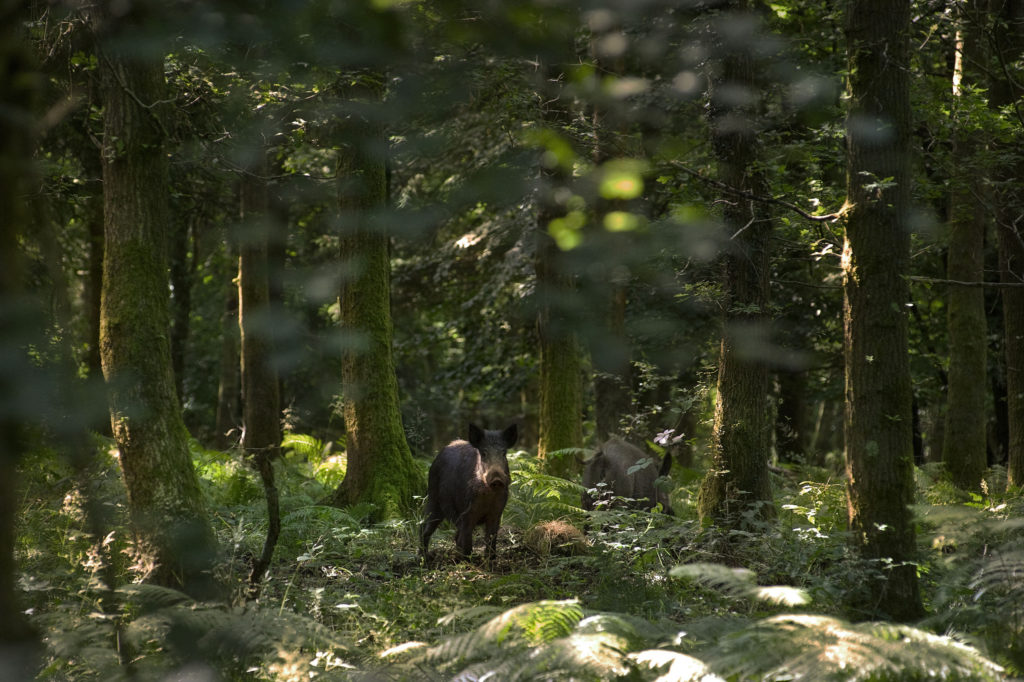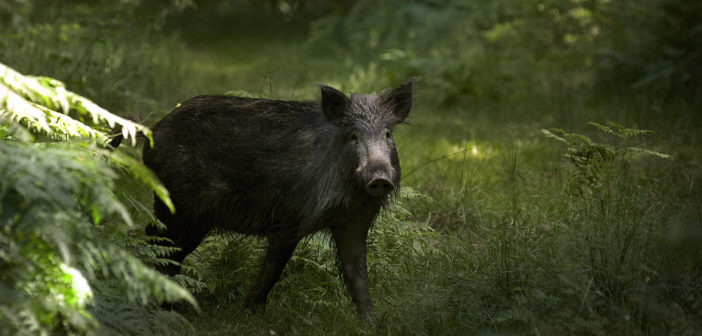With natural habitats dwindling, and wildlife suffering from the impact of human activities, it is remarkable when wild boar can survive and thrive. We should protect the boar, not demonize and persecute them.
History of wild boar
Wild boar were made extinct in Britain around 400 years ago. In the 1990s farmers reintroduced them to the country. Many escaped, or were dumped around the United Kingdom, and have established themselves in a few forests around the country. One of the largest colonies of wild boar in the UK is in the Forest of Dean. Another, much smaller, group have established themselves near the National Trust’s Stourhead Estate. Both of these groups of boar have unsuspectingly found themselves receiving national press coverage, due to people becoming displeased with their presence in particular areas.
Since boar have returned to the UK, they have been extremely successful in repopulating. Climate change means the winters are getting milder, and the food supply for wild boar is becoming more abundant. Harsh winters and scarcity of food in the past would have meant that wild boar numbers remained relatively low in comparison to present numbers. Unfortunately, rising populations mean increased conflicts with humans, resulting in calls for them to be culled.
Wild boar in Stourhead
Animal Aid UK was made aware of the situation at Stourhead in November 2018. Other high-profile animal protection organisations have joined us in speaking out against these unethical and misguided plans. Animal protection organizations Born Free, HSI UK, IFAW, PETA and Viva! all joined us in signing a letter to the chairman of the National Trust, calling for an immediate end to the cull plans. The Guardian published an article about our joint opposition to the plans.
On February 15th, Animal Aid met with two representatives from the National Trust to discuss the matter of the wild boar. Even though this dispute is still ongoing, some positive news that emerged was that the wild boar are still alive and haven’t been culled yet. The National Trust do still intend to cull the boar if they return to problem areas, but at the moment the boar seem to have removed themselves from these. Animal Aid recommended a number of measures, focusing on educating the public to safely interact with wildlife, fencing and potential long-term solutions including immunocontraceptives. Unfortunately the National Trust were unwilling to commit to not culling the wild boar in the areas around the Stourhead Estate, but our dialogue with them continues.

A wild boar in the UK’s Forest of Dean. Image credit Algy O’Connell, CC BY-SA 3.0
Forest of Dean
The situation in the Forest of Dean is also escalating, with recent reports of two additional gunmen being hired to assist in the cull of boar. More than 1,000 wild boar roam free in the Forest of Dean, according to the Forestry Commission who have begun a cull to kill around 600 of them.
We feel that culling wildlife is always cruel and unnecessary. Large-scale culling such as that in the Forest of Dean can result in mothers being killed, condemning their young to a slow and painful death. It can disrupt the complex social structure of the boar. Most importantly, these boar have the right to live out their lives free from harm inflicted by humans, and killing 60% of their population is wholly unethical. Humane alternatives to culling need to be explored by the authorities so such cruel and drastic action is avoided.
How to help
There are a few ways you can support wild boar. Educating people about the history and nature of wild boar is a great way to start. We would also recommend politely writing to the Natural Trust to voice your objections to their wild boar cull and, if you are located in the UK, writing to your Member of Parliament voicing your concerns around the cull in the Forest of Dean, especially if you live nearby.
Although not as direct, adopting a vegan diet is also a very effective way of helping all animals, from those in farms, to wildlife such as boar. Animal agriculture has an undeniable impact on the environment, and climate change has huge implications for wildlife across the world. Going vegan is a way to help combat climate change, and support the wildlife who are suffering the consequences. Order our free Guide to Going Vegan information pack here.
Featured image: a wild boar in the Forest of Dean. Image credit Algy O’Connell, CC BY-SA 3.0.





